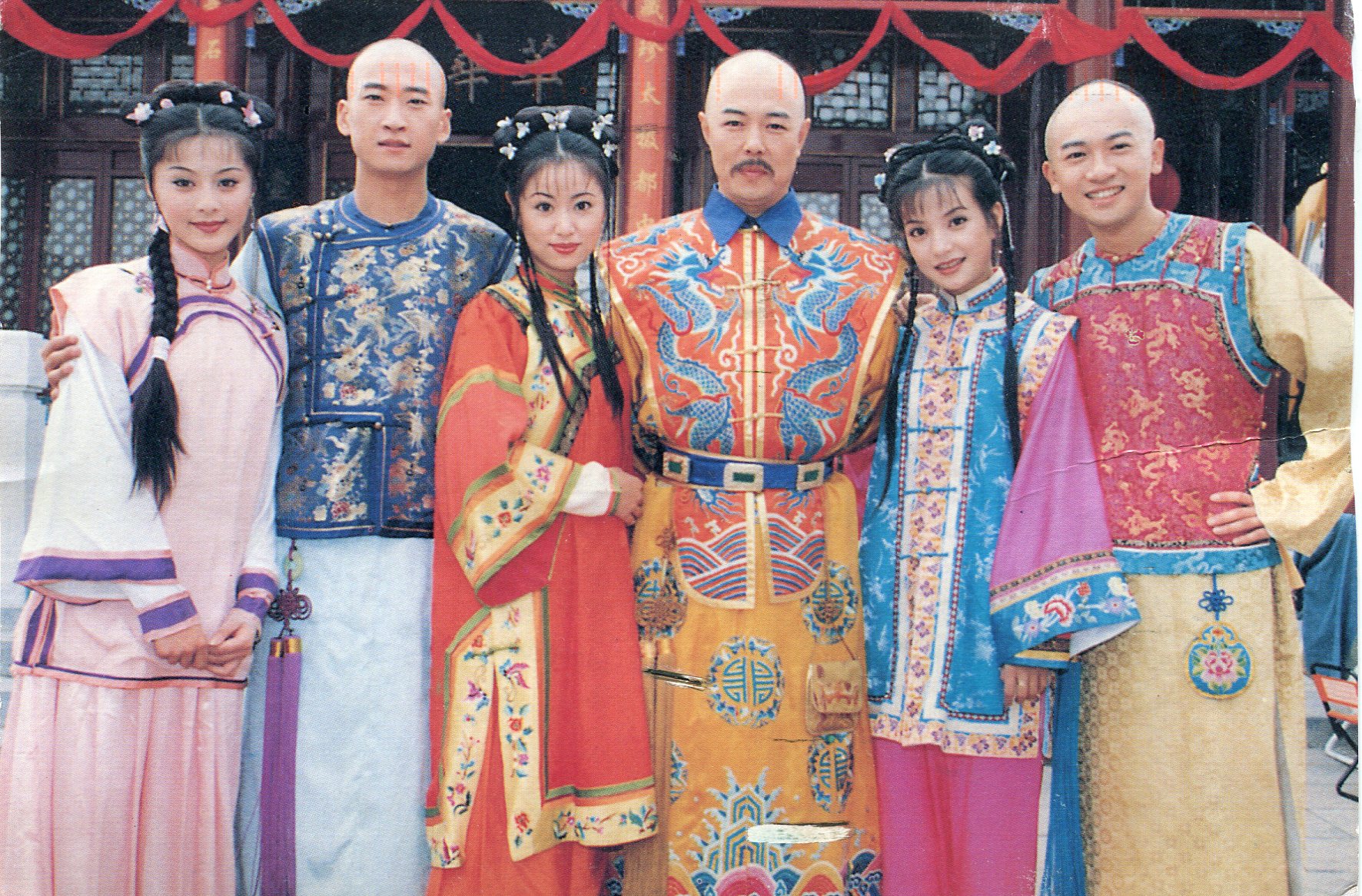
Chinese Traditional Fashion Remembering Letters and Postcards
In Chinese clothing culture, the overlap on the right side is known as youren. However, the cheongsam is not limited to the asymmetrical youren closure; there are various styles of cheongsam necklines, including a symmetrical opening in the chest area. Fasteners and closures
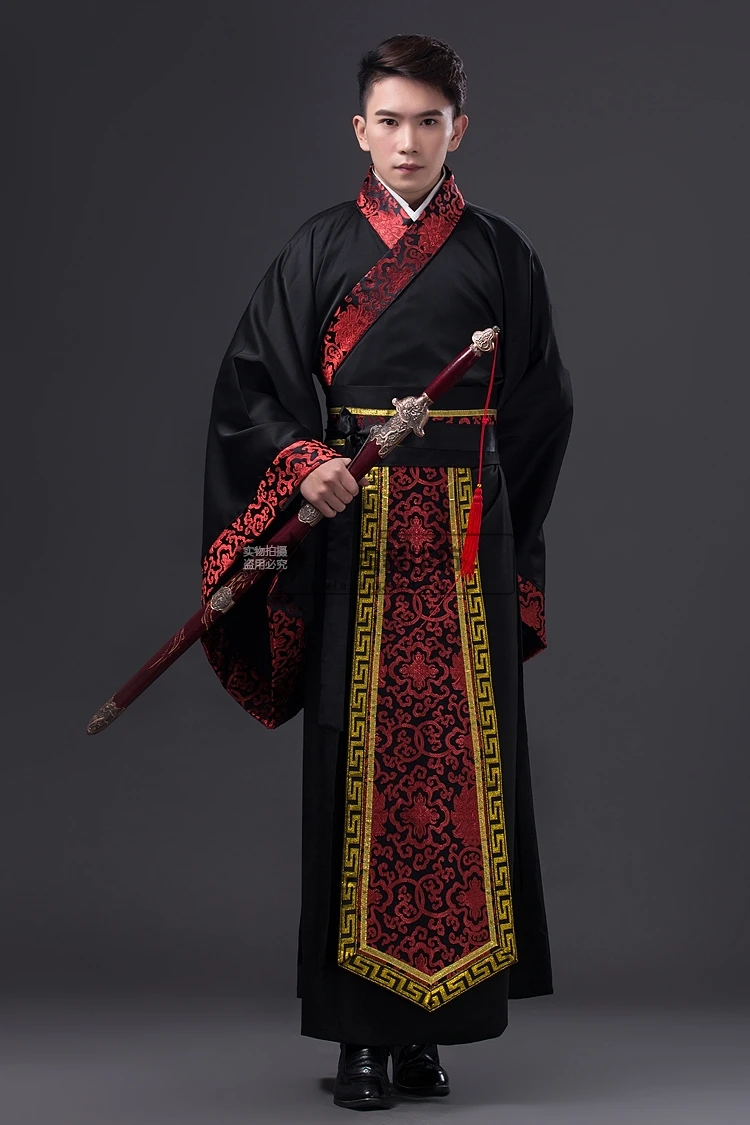
2018 Ancient Chinese Costume Men Stage Performance Outfit for Dynasty
Traditional Chinese Clothing With a world reputation of exquisite silk producing nation, Chinese clothing enjoys a time-honored culture. China was the first country in the world to cultivate silkworms and develop silk weaving. According to archaeologists, Chinese has acknowledged weaving since Neolithic ages 5000 to 6000 years ago.
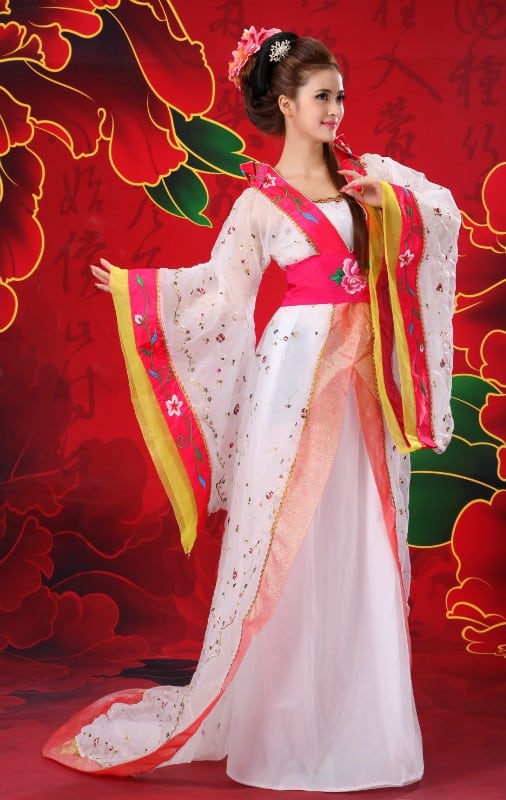
Top 10 Garments That Were Popular in Ancient China
Chinese hanfu, the traditional attire of the Han Chinese people, is an exquisite and graceful form of clothing that holds a significant place in Chinese history and culture.The hanfu dress is typically characterized by loose, flowing robes, wide sleeves, and a focus on natural fabrics such as silk and linen.The word hanfu or hán fú (汉服) literally means "Han ethnicity clothing."

Modern Cheongsam Top Vestido Oriental Traditional Groom Qipao Red
The Modern China Era (from 1949): The cheongsam became fashionable in films, fashion shows, TV Shows, and more types of formal occasions. Many female diplomatic agents and members of government wore qipaos to formal meetings. Qipao Styles in Old China Qipao Styles in Modern China
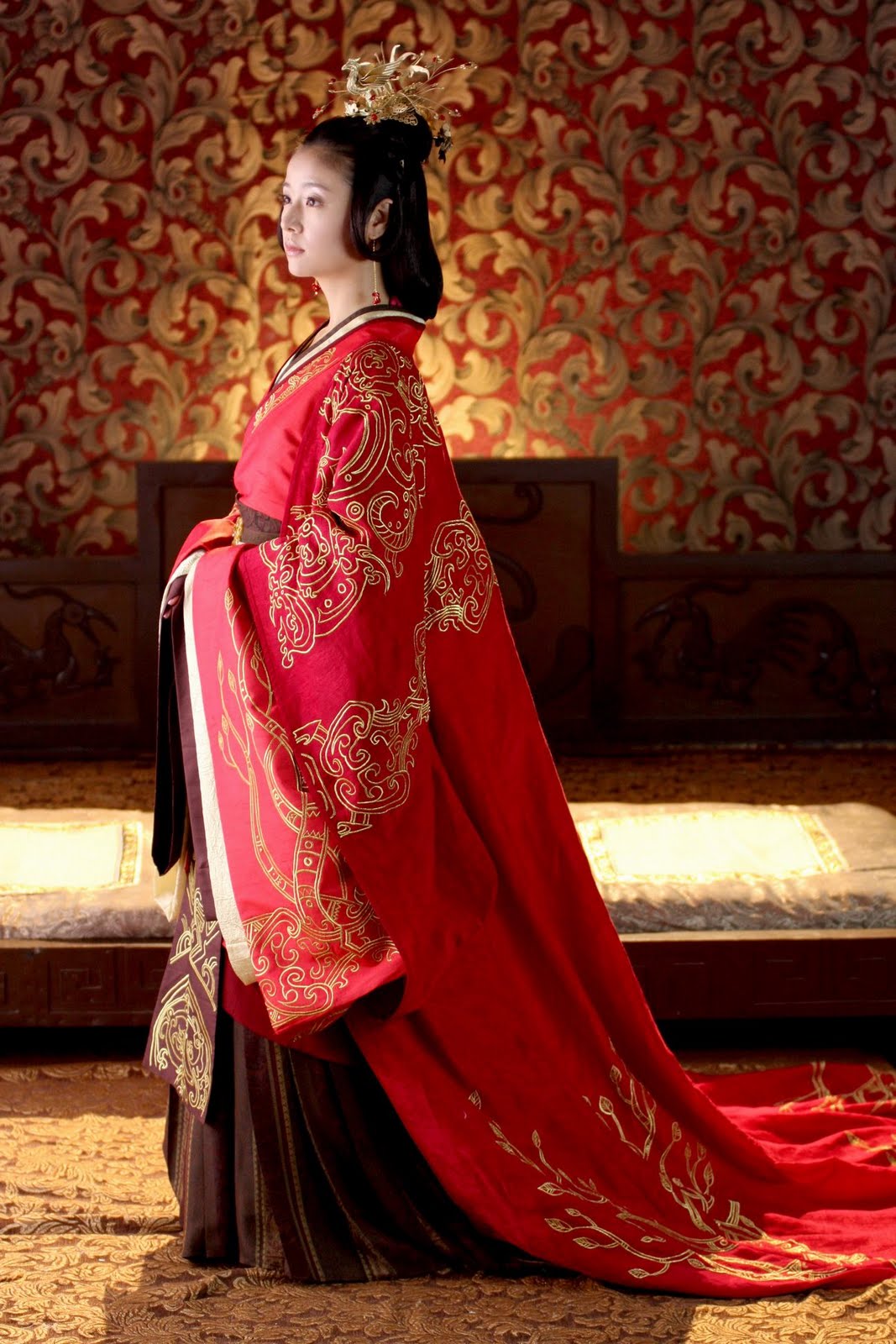
chihaha Han Chinese clothing
Hanfu was a symbol of traditional Chinese culture. It also had a far-reaching influence on the clothing in other neighboring Asian countries, such as the Japanese kimono, the Korean hanbok, and the Vietnamese Áo giao lĩnh. Chinese clothing started to be adopted by the Japanese in the 5th century. Traditional Japanese clothing is the

Ancient marriage costume the bride clothing gown traditional Chinese
Traditional Chinese clothing is far from the clothes we usually see in fashion shows like Pradasphere Travelling Exhibition 2014 in Hong Kong, Valentino Haute Couture 2019 in Beijing, and Chanel Pre-Fall 2009/2010 in Shanghai. The Chinese clothing culture has a long history which made a huge impact on China and Hong Kong's society today.
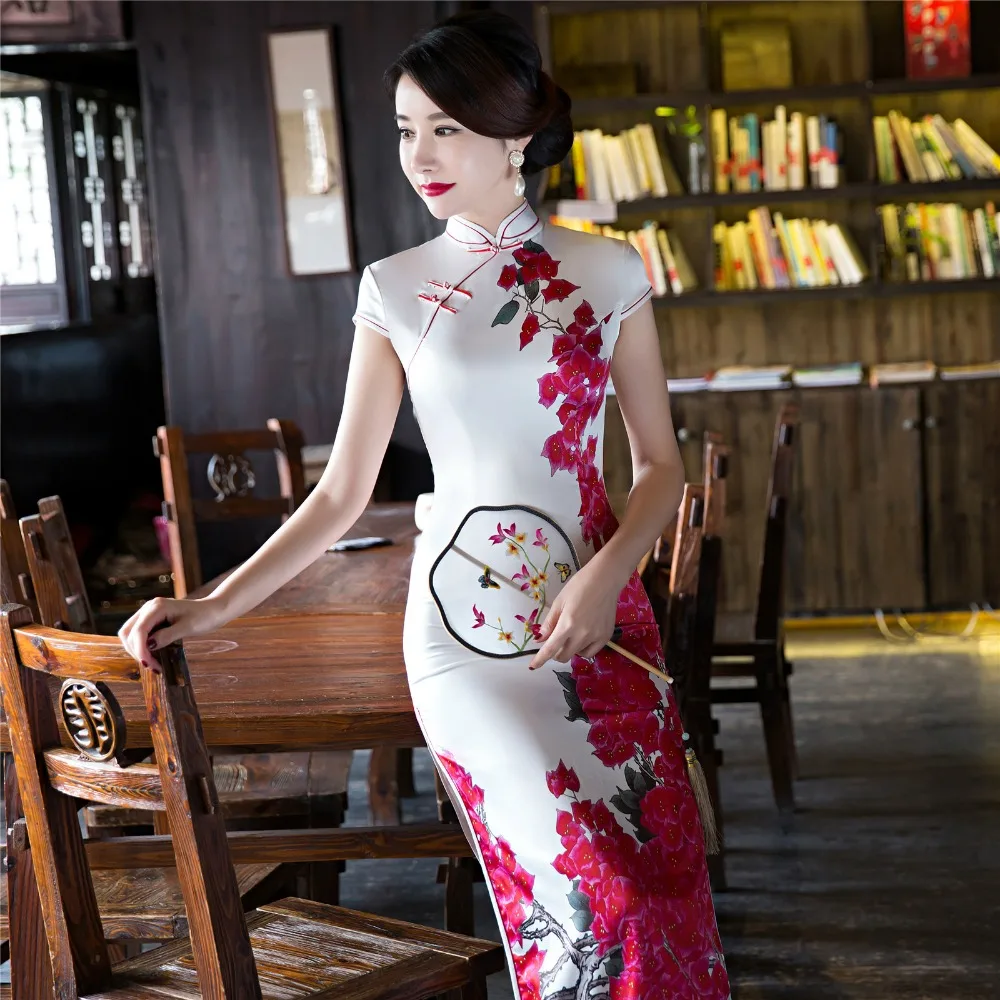
New Long Cheongsam Sexy Chinese Traditional Dress Qipao Chinese
Traditional Chinese clothing is known for its distinctive features and intricate designs. The most iconic style is the qipao, also known as the cheongsam, which is a form-fitting dress that originated in the 1920s. It features a high collar, a fitted bodice, and a long, flowing skirt. The qipao is often made from luxurious fabrics such as silk.

Ancient Traditional Chinese Woman Elegant Hanfu Dress Fashion Hanfu
During 1930s to 1940s, dress is further westernized, tailored to flatter body shape. During 1940s to 1960s, Qipao (Cheongsam) survives as everyday wear in Hong Kong until the late 1960s. Today many Chinese brides will choose modern style Qipao or Longfeng Kwa (traditional Chinese dress similar to Qipao) as their traditional suits on wedding.

Ancient Traditional Chinese Woman Elegant Hanfu Dress Fashion Hanfu
The China Quarterly 189 (2007): 144-61. Print. Xiangyang, Bian. "Origin of Qipao Fashion in Early Republic Period." Journal of Donghua University, 2003. Yang, Chui Chu. "The Meanings of Qipao as Traditional Dress: Chinese and Taiwanese Perspectives." Iowa State University, 2007.

Chinese Folk Dance Dress Ancient costume, Tang costume, Han costume
Traditional Chinese clothing has been a recognizable staple of the culture for centuries. Constructed with beautiful fabrics like silk and satin, these clothes are steeped in history and have become an integral part of Chinese society. But why is traditional Chinese clothing so unique? What makes it stand out from other types of clothing?

Chinese Traditional Dress Women's Satin Red Long Cheongsam dress Qipao
The Hanfu, Zhongshan suit (Mao suit), Tang suit, and cheongsam (qipao) are the four most distinctive types of traditional Chinese clothing. 1. Hanfu — The Most Traditional Chinese Clothing The Hanfu ('Han clothing' — the majority of Chinese are of Han ethnicity) is the oldest of China's traditional clothes.

Huangling Village Honors Chinese Traditional Embroidery with Qipao
Putting China's Traditional Hanfu on the World Stage A resurgence of traditional culture and a fast-growing overseas population fuel a new chapter for Han Chinese ethnic clothing. By.

The Traditional Chinese Clothing”Hanfu” by Chenhui He Winter
Traditional Han Chinese Clothing (Han Fu): It refers to the attire worn by the Han people from the enthronement of the Yellow Emperor (about 2698 BC) till the late Ming Dynasty (1368 - 1644 AD). It became known as the Han Fu ("fu" means "clothes" in Chinese) because the fashion was improved and popularized during the Han Dynasty.

Shanghai Story 2018 Vintage Qipao Dress Cheongsam Oriental Dress
March 8, 2021 On the streets of Shanghai, content creator Shiyin can be seen wearing a traditional outfit from China's Ming period. Popular on social media, she routinely shares fashion buys,.

Buy Hanfu National Costume Ancient Chinese Fairy Long
2. Qipao. Qipao appeared in the 1920s and remained as the "national dress" until the 1950s. Qipao was originally made wide and loose, covering most parts of the body. Yet it could hardly be considered fashionable, and people were seeking for a more snazzy style of dressing to suit their tastes.

Top 30 Traditional Chinese Clothing of All Time Newhanfu
Chinese clothing includes the traditional hanfu and garments of ethnic minorities, as well as modern variations of indigenous Chinese dresses. Chinese clothing has been shaped through its dynastic traditions, as well as through foreign influences. [1]